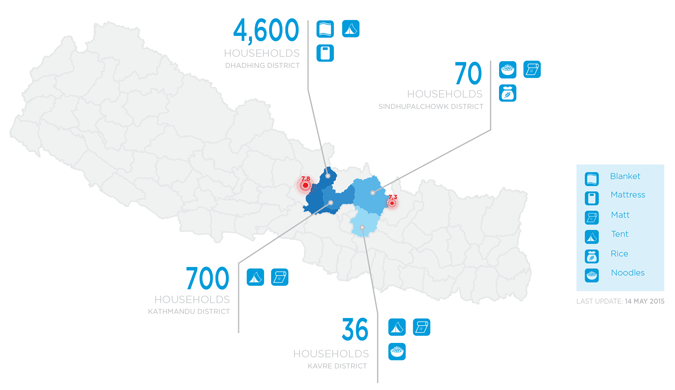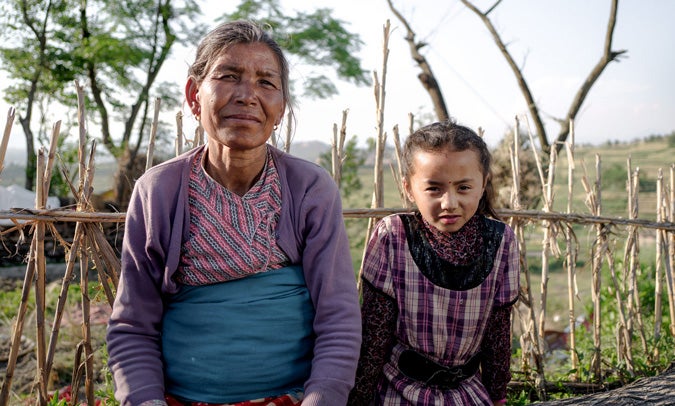Nepali home-based workers association helps women rebuild
Date:
Author: Jo Reynolds

Under normal circumstances being a member of SABAH Nepal means receiving training and support towards generating a sustainable income through home-based work. Since the earthquake on April 25, however, circumstances for the women of Khokhana and similar villages across Nepal, are far from normal. In response, SABAH has adapted and is instead assessing casualties and helping manage relief supplies coming into the villages.
At 11.56 A.M., a 7.8 magnitude earthquake hit Nepal. Fortunately most of Khokhana’s inhabitants were outside working in the fields; if it had been the middle of the night, the death toll would have been much higher. As it is, many of the survivors are living in clusters of hastily erected shelters and tents on the outskirts of the village, too scared to enter their homes, even if they are still standing.

Toilets are hard to come by, there is no electricity and drinking water is being brought in by tanker, which means villagers have to queue for hours to fill their small water pots. The lack of water, sanitation and hygiene is creating a serious threat of disease and death, especially among the most vulnerable young children and the elderly. Mosquito-borne disease is also a serious life threat.
The women of Khokhana are mainly home-based workers. Unlike many factory workers, they have few rights, must pay for their healthcare and their skills go unrecognised; many have husbands who are economic refugees, which makes the income these women earn from working at home essential to meeting their families’ basic needs.
More than 200 of these women are members of SABAH Nepal, an organisation that, under ordinary circumstances, works to help them generate a sustainable income through setting up their own business, supported by leadership and economic training. In these extraordinary times, SABAH has been visiting Khokhana to assess their members’ needs and to help manage the relief supplies coming into the villages. Within a week of the earthquake a team provided lunch and dinner to thousands of survivors.

A total of 2.2 million people in Nepal are classed as ‘home-workers’, and 85 per cent of them are women. For the past six years SABAH Nepal has been working with these women in 27 clusters across the country, creating a training programme, and a proper business, that encourages homeworkers to understand economics, as well as the responsibilities involved with being a critical part of the supply chain.
One these clusters is Khokhana. While none of the SABAH members died, a handful lost family members and many of them have lost their homes. The village is in a rural farming area, so much of the women’s income – which in turn supported almost 1,000 others in the village – was earned by growing organic vegetables that they then supplied to a café in town. Khokhana is also the manufacturing base for supplying packed, cooked ready-to-eat food to shops in Kathmandu.
The earthquake has not only destroyed their food stores, but also the mustard seeds or rice for the next planting. The training and support provided by SABAH Nepal will be more necessary than ever as Khokhana and other villages like it look to rebuild and restore their livelihoods.
